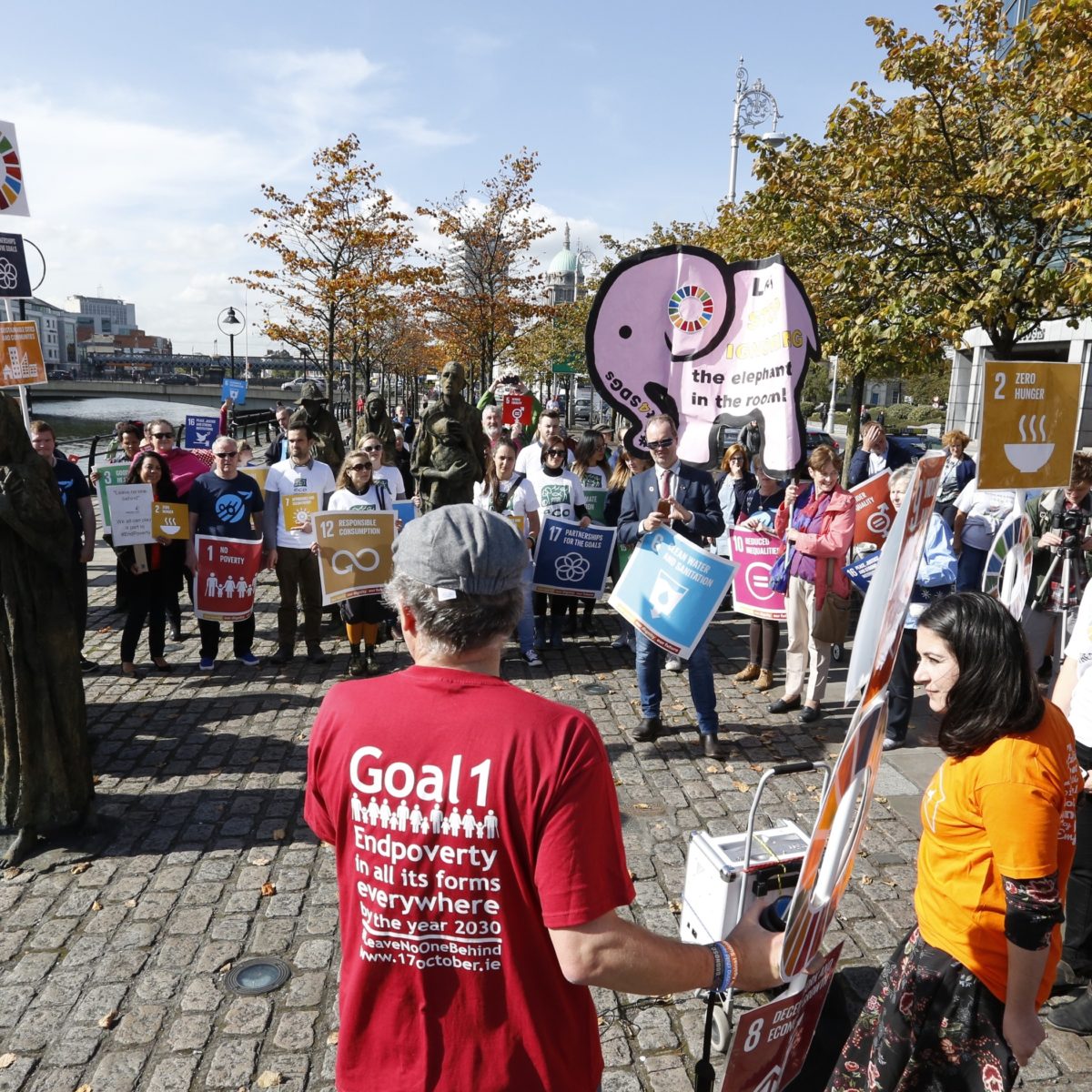Measure what matters and value what counts ______
Identifying inequalities and discrimination requires the generation of evidence and data collection and disaggregation that go beyond gender, geography and age, to include all grounds of discrimination prohibited under international law. This would go some way towards ensuringthat all forms of discrimination and other root causes of inequalities are identified and addressed.
The importance of being able to monitor progress in reaching the furthest behind first is reflected in the recommendation that the State develop nationally relevant indicators that cover all the State’s contributions towards the SDGs. Due to the universal nature of the SDGs, many of the underlying targets are not relevant for Ireland (for example, the amount of people living under the international poverty line). We require national indicators to be identified to monitor the implementation of the SDGs, as suggested by the Sustainable Development Solutions Network’s SDG Index. Only with relevant disaggregated data can policies be developed to reach the furthest behind effectively.
Additionally, it is becoming increasingly clear that our economic model, which prioritises growth and profit, is unsustainable and detrimental to both the people and the planet. Economic growth does not matter if it doesn’t result in better outcomes for either. A Well-being Economy starts from the idea that public interests should determine economics, and not the other way around. It means “combining the idea of prosperity with the possibility of social progress within planetary boundaries” with the SDGs as the foundation. Among G20 countries, 74% of people supported economic systems change to go beyond a singular focus on profit and growth, and to instead encompass health and the planet. The Citizens Assembly for Biodiversity Loss also called for the Irish Government to move “Beyond GDP” and place the National Well-being Framework at the heart of economic decisions. The UN Secretary-General released a policy brief as part of his Our Common Agenda report, outlining a framework to progress Beyond GDP. The OECD has also highlighted the limitations of GDP as a measure of economic welfare and provides an overview of approaches to better integrate multidimensional well-being concepts in economic policy strategies. The time is now to seek prosperity without growth.
We call on the Government to:

Ensure Ireland has a coherent set of indicators that covers all of its contributions and obligations to the achievement of the SDGs, both nationally and internationally.

Resource the CSO to collect relevant, disaggregated, and timely data which would inform policies to reach the furthest behind first. This data should be published regularly.

Mandate the National Economic and Social Council to establish, measure and report on a nationally relevant indicator set for sustainable development.

Fully align the Wellbeing Framework with the SDGs, accounting for international spillover effects.

Make use of comparative EU data and case studies on issues such as addressing child poverty, housing, disability which are widely available to Member State governments through EU Institutions and agencies.

Integrate measurement of and reporting on human rights obligations with measurement of and reporting on the SDGs, considering the extensive overlap between human rights obligations and the SDGs. Tied to this, the Irish Human Rights and Equality Commission (IHREC) should be adequately resourced to engage with questions of SDGs/human rights alignment.









